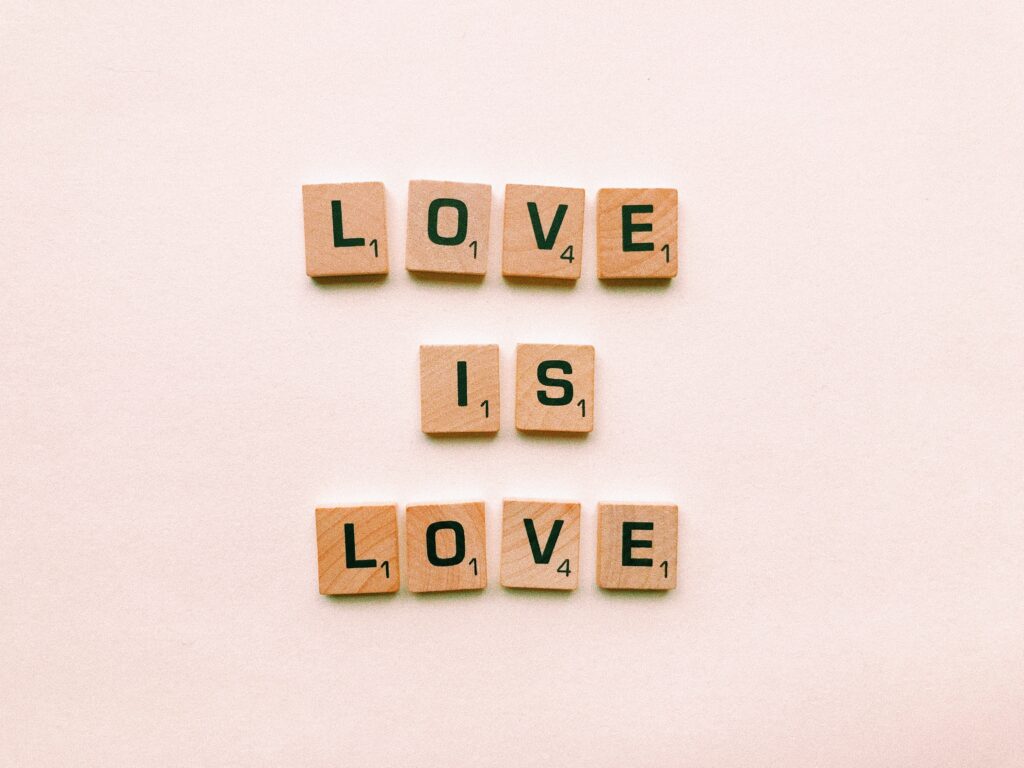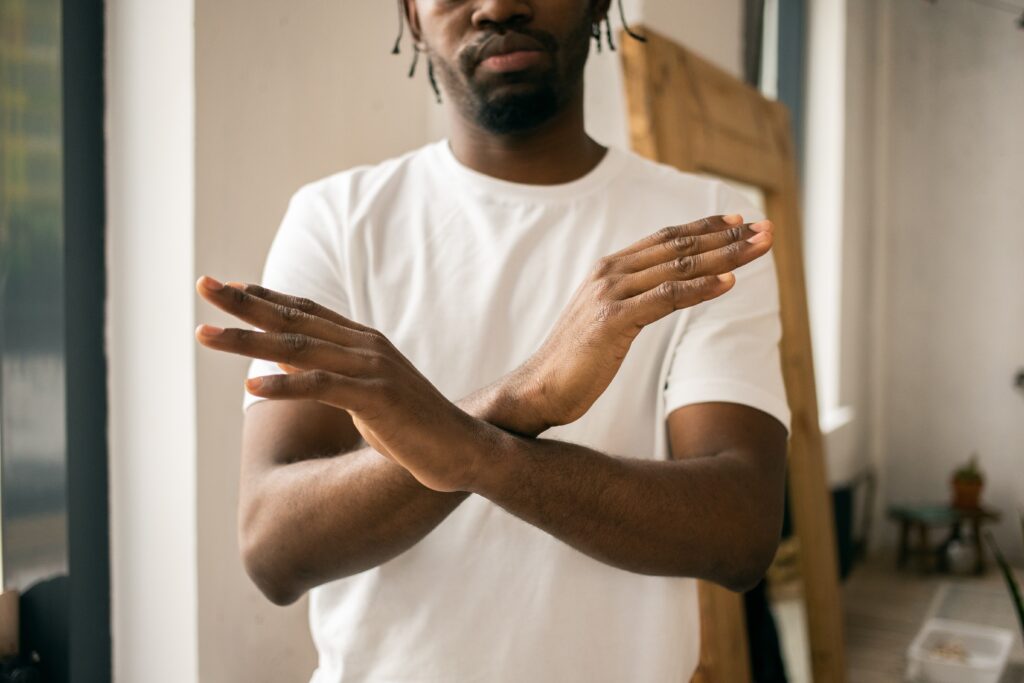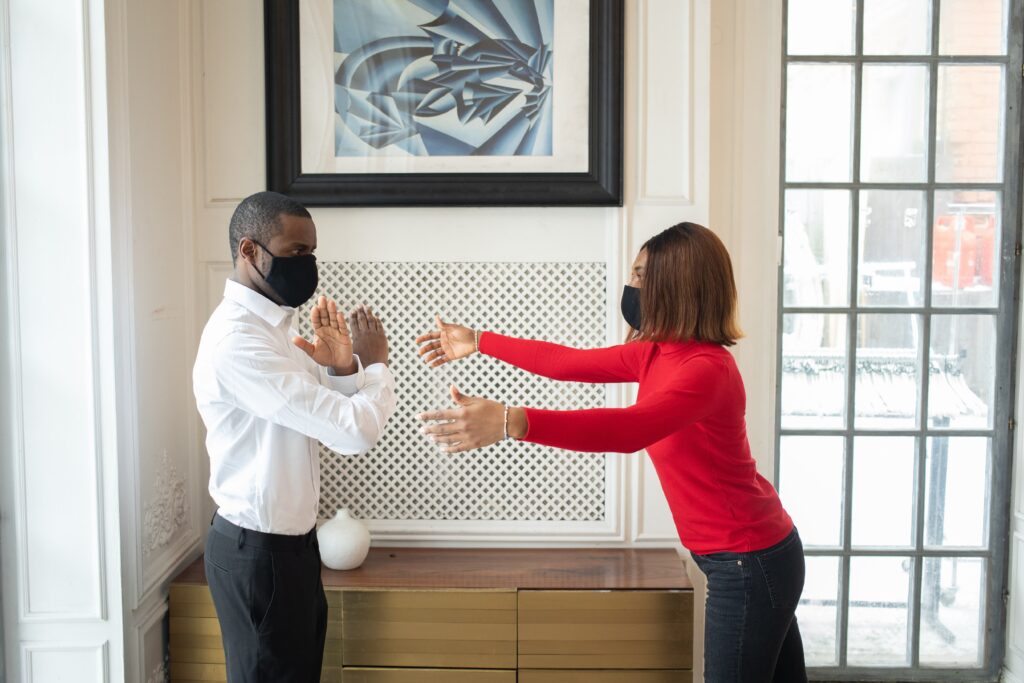6 Things That Damage Your Relationships

It’s easy to get lost in life and your relationships.
It comes and goes, and there were probably times you wondered why they chose to go away.
What went wrong?
There are certain types of behavior that damage your relationships, and sometimes, you don’t even notice you’re doing them.
So today, we’re going to find out what they are and how to prevent them.
FRIENDLY DISCLAIMER: This video is for educational purposes and is based on personal opinions. This video is not a substitute for professional advice, but general guidance. We advise you to always listen to your intuition and always do what is right for you.
1. Refusing to say sorry.
How do you resolve fights or misunderstandings?
Do you perhaps refuse to back down, even if it’s your own mistake?
Practicing healthy communication is vital for relationships.
And this includes the ability to admit that you are the one at fault.
There is power in this act. It shows that you are mature enough to look at your own shortcomings and capable of overcoming them to the best of your ability.
But why is it so difficult to say sorry?
Well, saying sorry can lead to feelings of shame.
This can make you feel bad about yourself and rethink whether you’re a good person or not.
It helps to think that it’s not a black and white scenario without a gray area.
Saying sorry doesn’t equate to you having a bad personality.
Saying sorry just means that you’re sorry. And that you’re willing to admit this because you cherish the other person and will try to be better for them.
So, take courage in asking for forgiveness. You can do it.
2. Having low self-esteem.
Do you tend to be insecure about your own self, skills, or appearance?
People who have low self-esteem try to diminish these feelings by fully relying on their relationships for emotional or psychological stability.
This is called codependency. And this can make a relationship go from healthy to toxic fast.
It is normal to rely on a partner for support, but not when you’re depending on them with every fiber of your being.
Being codependent can stem from abusive families, childhood upbringing, or exposure to people with mental or physical illnesses (Berry, 2017).
The longer this goes on, the more probable it is to develop feelings of resentment or emptiness. (GoodTherapy, 2019).
If you find yourself relating to what is mentioned, don’t worry. There is always room for growth.
For starters, you can try developing your own self-care routine to encourage feelings of relaxation and happiness.
What makes you feel good?
Do you like going to the spa?
Taking long walks?
Doing some exercise? (Yes, exercise can make you feel good! Here’s why.)
It’s important to explore and identify the things you like doing so you can incorporate them into your own schedule.
Spend time with your supportive friends, or even go to a therapist. Someone will always be there to help you when you need it.
3. Refusing to compromise.
Relationships can and should be thought of as healthy partnerships.
That aside from your independence, you’re able to have someone to make choices with, too.
But being two different people, you’re bound to have some disagreements along the way.
And that is why we have the magic of compromise.
You discuss your sides of the story and create a unified decision that satisfies you both, leading to further growth as a team. More trust, more security.
But do you feel like you’re sacrificing more than compromising? Or perhaps feel like you’re asking too much of someone already?
These types of situations can cause negative feelings such as bitterness or resentment to develop.
So how do you prevent this?
Understand that you, your friend, family, or partner are completely different people.
You will never be on the same side all the time, and that’s okay.
Find a new alternative that works for you both, and try to build an environment that’s both peaceful and yet open to healthy arguments.
Communicate, and put yourself in their shoes as you listen.
4. Always putting them first.

When you love someone, you have a natural inclination to shower them with affection.
Sometimes, it even comes at the expense of your own physical and mental health.
You go out of your way to make them feel happy.
You give them gifts, tell them compliments, and protect them whichever way you can.
It’s all good, but are you also giving the same treatment to your own body and self?
Remember that your relationship with your own self came first before everything else, so it needs some love and care as well.
Try taking some time off for yourself. Pursue your passions, do your hobbies, or even get new ones!
Keeping your sense of independence alive is a way to stop depending on others for your own emotional and psychological stability.
Own your life. You matter.
5. Always putting yourself first.

It’s funny how this is just the exact opposite of number four, but it needs to be said.
Just like how some people have an inclination to always put themselves last, others have the tendency to always put themselves first.
But isn’t that a good thing? Isn’t that what the whole self-love thing stands for?
See, self-love means nurturing yourself to become a better presence all-around. You give yourself time offs, distance yourself from toxic people, and grant yourself the chance to enjoy life!
However, when you’re doing whatever you want to do without considering other people’s feelings, you may come off as selfish.
But no one is perfect. Every person has undergone a selfish moment or more.
This is why it helps to be aware of your own actions.
Consider how your deeds are affecting your relationships.
Did they seem to be hurt by what you said?
Are some people putting some distance away from you?
Keep an eye out for any possible indicators, and don’t be afraid to face them head-on if you do.
Don’t be afraid to open up your feelings and admit your mistakes to those you feel you’ve wronged.
It’s a sign of maturity, and your loved ones will certainly appreciate the effort.
6. Harboring grudges.
Are you the type of person who likes to hold a grudge?
Let’s say you catch someone making a mistake, do you talk to them about it or keep it in for future arguments so you can get the upper hand?
According to Sarah Vanbuskirk, holding a grudge is a common way some people respond to feeling that they’ve been wronged.
It’s a defense mechanism, and some grudges last longer than others depending on the cause.
Keeping grudges may cage you in a whirlwind of negative emotions like anger, bitterness, resentment, and hopelessness.
There really aren’t a lot of benefits to it, and rather than build relationships, it can damage them.
Feeling anger is important and normal, that’s why it helps to learn how to cope with it in a healthy manner.
When you’re angry, give yourself some time to let the steam off.
Go for a walk, do some exercise, try to get your mind off of what is making you angry. Chances are, you’ll get angrier the more you dwell on it.
After you’ve calmed down, reflect on what happened, and try to build your way to a resolution.
Should you talk it out with them? Give some space for a bit? Or clear up a misunderstanding?
Whatever it is, it’s important to get to a conclusion, which is what harboring grudges precisely don’t do.
Patience, understanding, and acceptance will help you get through it.
It’s certainly not easy, and sometimes you really just want to bask in your rage – do it!
But, in the end, you bounce back. You are more than capable of being a better person.
Choose forgiveness.
SHARE YOUR THOUGHTS
Have you ever called it quits with a friend or partner?
Why do you think it happened?
Please share your stories in the comment section below. We appreciate hearing your experiences with different relationships.
Remember, you never stop growing as a person.
What you experience now will be a lesson for tomorrow.
Thank you for reading. Until next time!
READ MORE
5 Ways You Unintentionally Ruin Your Relationships
6 Signs It’s Time to Reevaluate Your Relationship
The 4 Types of Dependency in Relationships
5 Signs Your Crush Doesn’t Want a Relationship
7 Signs Your Relationship Is Falling Apart
REFERENCES
Adcock, D. (2021, September 6). Here’s What Compromise Looks Like In A Healthy Relationship. The Source. Retrieved January 14, 2022, from https://www.thesource.org/post/heres-what-compromise-looks-like-in-a-healthy-relationship
alifecoloredamber. (2021, August 28). THINGS THAT COMPLICATE RELATIONSHIPS. Instagram. Retrieved January 14, 2022, from https://www.instagram.com/p/CTFYmwWM9zh/
Berry, J. (2017, October 31). What’s to know about codependent relationships? Medical News Today. Retrieved January 14, 2022, from https://www.medicalnewstoday.com/articles/319873#treatment-for-codependency
BMI Healthcare. (n.d.). What is self care and why is it important? | Health Matters | BMI Healthcare | BMI Healthcare. Retrieved January 14, 2022, from https://www.bmihealthcare.co.uk/health-matters/health-and-wellbeing/what-is-self-care-and-why-is-it-important
Books, S. (2021, March 3). Teaching Teens The Difference Between Self-Love Versus Selfishness. Moms. Retrieved January 14, 2022, from https://www.moms.com/teaching-teens-difference-between-self-love-versus-selfishness/
Braithwaite, P. (2021, February 23). If Putting Yourself First Feels Weird, Read This. SELF. Retrieved January 14, 2022, from https://www.self.com/story/putting-yourself-first
GoodTherapy Editor Team. (n.d.). Recovery from Codependency. Good Therapy. Retrieved January 14, 2022, from https://www.goodtherapy.org/learn-about-therapy/issues/codependency/recovery#:%7E:text=People%20with%20codependency%20often%20put,find%20themselves%20in%20toxic%20relationships.
Prichard, S. (2016, June 13). The Power of Admitting A Mistake. Skip Prichard | Leadership Insights. Retrieved January 14, 2022, from https://www.skipprichard.com/the-power-of-admitting-a-mistake/
Segel, A. (2017, September 8). 6 Compromises In A Relationship You Can Expect To Make When It’s Healthy. Elite Daily. Retrieved January 14, 2022, from https://www.elitedaily.com/dating/compromises-in-a-healthy-relationship/2064738
Vanbuskirk, S. (2021, August 20). The Mental Health Effects of Holding a Grudge. Verywell Mind. Retrieved January 14, 2022, from https://www.verywellmind.com/the-mental-health-effects-of-holding-a-grudge-5176186
WEDDING GURU. (2021, November 12). 19 Common Things That Can Destroy Your Relationships. Happy Wedding App. Retrieved January 14, 2022, from https://www.happywedding.app/blog/things-that-can-destroy-your-relationships/
Winch, G., Ph. D. (2013, May 19). 5 Reasons Why Some People Will Never Say Sorry. Psychology Today. Retrieved January 14, 2022, from https://www.psychologytoday.com/intl/blog/the-squeaky-wheel/201305/5-reasons-why-some-people-will-never-say-sorry







Responses